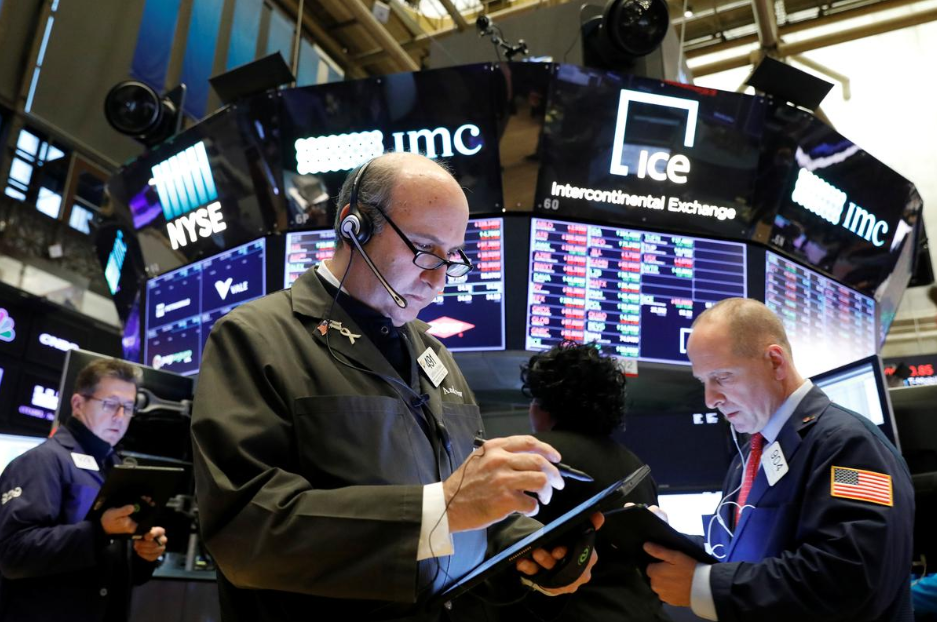On Wall Street: caution, optimism


How the spread of the coronavirus plays out will determine the immediate course of the world economy, the US stock market and perhaps November's presidential election, a team of Wall Street analysts believe.
New York investment bank Goldman Sachs plotted optimistic and pessimistic courses:
If the global spread of the coronavirus, also called COVID-19, is brought under control quickly and if supply chain disruptions are minimal, the US and world economies will rebound in the second half of the year.
But if the supply chain is broken and production severely disrupted, US and global demand will fall. National economies worldwide likely will contract in both the first and second quarters, and the world will slide into recession.
Goldman Sachs is cautious, but optimistic.
"Our new baseline scenario involves a continued slowdown in infections in China that allows for a slow recovery in indicators of economic activity," the firm said in a research report to investors.
"However, it also includes moderate supply chain disruptions in the global goods producing sector as well as a hit to consumer spending and business activity from national outbreaks that go well beyond China. All else equal, this would imply a short-lived global contraction that stops short of an outright recession."
Nevertheless, the Goldman Sachs analysts expect no earnings growth in US companies this year due to a sharp decline in Chinese economic activity, lower demand for US exports, supply chain disruption and increased economic uncertainty.
That's likely to mute the market because investors seek growth.
The Democrats haven't yet selected a candidate to challenge President Donald Trump, but a sharp and prolonged economic downturn could change the electoral calculus despite record low unemployment and solid wage growth.
"History shows that US presidential re-election probabilities are highly dependent on second-quarter US Gross Domestic Product growth," Goldman Sachs analysts said. "If Covid-19 becomes widespread and leads to a slowdown in US growth or a recession, it could alter current expected election outcomes."
In the short term, last week's market drop of more than 3,500 points — the sharpest decline since 2008 — is likely to mean a shift to defensive stocks and away from those offering the prospect of high growth and hefty returns.
Investors are likely to move to real estate companies that generate about 81 percent of their revenue in the US. Utilities offer similar strengths and historically have offered attractive valuations.
Cyclical stocks, or those that reflect current economic activity, are likely to take a hit, including tourism companies.
"We estimate that seasonally adjusted Chinese tourism spending falls by 90 percent starting in February, with a very slow recovery thereafter," the Wall Street analyst said.
A prolonged downturn also would pummel consumer stocks.
Last week, Apple warned that this quarter's revenue will fall short of the targeted range of $64 billion to $67 billion because the coronavirus outbreak has limited iPhone production and eroded demand in China, where the company earns about 20 percent of its revenue.
The weeklong market decline pushed Apple close to bear market territory, or a decline of 20 percent, from a record high set Jan 29 when the stock rose to $327.85 a share. Apple's shares closed Friday at $273.36, down 16.62 percent.
Bank stocks are likely to take a hit in a slowing economy, especially if interest rates fall. But in general, US stocks will outperform foreign stocks, Goldman Sachs said.
"Global economic growth is slowing, but the US is comparatively better positioned that most other regions," Goldman Sachs said. "The consumer accounts for 70 percent of the US economy, the unemployment rate stands at 3.6 percent — the lowest rate in 50 years — wages are rising, households have been (reducing debt) for a decade and consumer confidence remains strong."
The Conference Board, a nonprofit business research organization, said consumer confidence in February rose to 130.7 from 130.4 in January. But that's below the 132.6 that economists polled by Dow Jones expected before the coronavirus threat upended the market. (1985=100.)
"Despite the decline, consumers continue to view current conditions quite favorably, Lynn Franco, senior director of economic indicators at the Conference Board, said in a statement.
"Consumer's short-term expectations improved, and when coupled with solid employment growth, should be enough to continue to support spending and economic growth in the near term."
However, last week's stock market selloff was driven by fears consumers would cut back on spending and erode company earnings.
The World Health Organization (WHO) increased its risk assessment on the coronavirus to "very high" from "high" at the global level.
"We are on the highest level of alert or highest level of risk assessment in terms of spread and in terms of impact," Dr Mike Ryan, executive director of WHO's health emergencies program said Friday at a news conference in Geneva. "This is a reality check for every government on the planet: Wake up. Get ready. This virus may be on its way."
- Professional managers key to rural vitalization, expert says
- Chinese clinical trial shows breakthrough in liver cancer survival
- Alibaba committed to AI advancement amid leadership shake up
- Rapeseed flowers bloom in Guizhou, heralding spring visitors
- Chengdu High-tech Zone celebrates Lantern Festival with AI, talent showcase
- Shanghai Disney Resort launches 10th anniversary community giving program




































